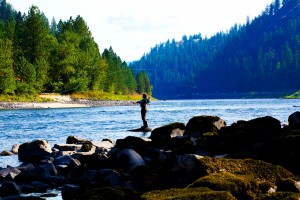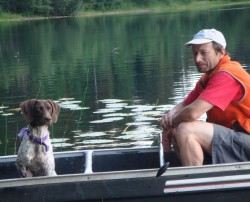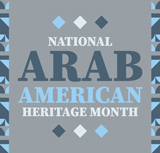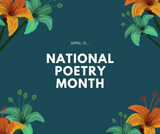 We asked Rick Bass and David James Duncan to tell us about their new collaboration, The Heart of the Monster, a half fiction/half non-fiction advocacy book whose proceeds go to All Against the Haul. Bass and Duncan have joined All Against the Haul in protesting the construction of a permanent industrial corridor along rural roads in the Northwest and Northern Rockies that will allow oil companies access to the Alberta Tar Sands.
We asked Rick Bass and David James Duncan to tell us about their new collaboration, The Heart of the Monster, a half fiction/half non-fiction advocacy book whose proceeds go to All Against the Haul. Bass and Duncan have joined All Against the Haul in protesting the construction of a permanent industrial corridor along rural roads in the Northwest and Northern Rockies that will allow oil companies access to the Alberta Tar Sands.Says Bass: David and I both feel this is a critical story. We’re depicting a war against the world we live in, the world that either will or will not ultimately sustain us. At this stage of our lives, novel-writing is incredibly important to us, but we could not say No when asked to engage on this issue. I gave up a season of bird hunting in eastern Montana, and David gave up a season of steelhead fishing, though we have built our lives around making space in the autumn for these passions.
 The book was a steep learning curve for me. I had to shift from my long-time efforts to help protect wilderness areas in a little million-acre valley in Northwest Montana—the Yaak —to a story with global implications. The Heart of the Monster isn’t just about Idaho and Montana. It’s about corporate power in America, about salmon and grizzlies and species extinction, about A.B. Guthrie’s and Ivan Doig’s Big Sky, about quality of life. It’s a story that pits irreversible global warming versus the integrity of wilderness, the Columbia River Gorge versus ExxonMobil, community integrity versus corporate power, and the politics of money versus those of heart and will. We depict what climatologist James Hansen calls “an intergenerational injustice.” We depict a struggle that is being fought by the tribes, at the city council level (when they try to come through Missoula), at the motorcycle club level, and by anglers, hunters, bicyclists, birders, tea partiers, Buddha-garden folks, Fairfield farmers, ironworkers and regional commercial truckers (whose routes will be clotted by Exxon’s), and on and on.
The book was a steep learning curve for me. I had to shift from my long-time efforts to help protect wilderness areas in a little million-acre valley in Northwest Montana—the Yaak —to a story with global implications. The Heart of the Monster isn’t just about Idaho and Montana. It’s about corporate power in America, about salmon and grizzlies and species extinction, about A.B. Guthrie’s and Ivan Doig’s Big Sky, about quality of life. It’s a story that pits irreversible global warming versus the integrity of wilderness, the Columbia River Gorge versus ExxonMobil, community integrity versus corporate power, and the politics of money versus those of heart and will. We depict what climatologist James Hansen calls “an intergenerational injustice.” We depict a struggle that is being fought by the tribes, at the city council level (when they try to come through Missoula), at the motorcycle club level, and by anglers, hunters, bicyclists, birders, tea partiers, Buddha-garden folks, Fairfield farmers, ironworkers and regional commercial truckers (whose routes will be clotted by Exxon’s), and on and on.
Says Duncan: Suzie Estep (of Missoula) and her sister Trish Webber (of Corvallis, Oregon) called together a ragtag group of people who were highly disgruntled at the prospect of the Heavy Haul. Being fond of ragtagism (sic) and feeling far from gruntled (does gruntled mean “happy” since digruntled means unhappy?) I attended an early meeting. At that meeting the group asked me to write some kind of rabble-rousing protest essay, as I did when we were fighting cyanide heap leach goldmines and saving the Blackfoot River.Thinking it over, I figured a short book, in an edition of, say, 5000, would be more effective than a mere magazine article because it could be much more free-swinging and uncensored. I could go long if needed, and we could target a specific strategic audience. But I felt unable to even remotely handle such a task unless I had a ridiculous amount of help.So, as it says in the preface of our book, I made outrageous demands, asking Trish and Suzie to hire Rick to cover Montana, Steven Hawley (author of the forthcoming Beacon Press book Recovering a Lost River) to handle the investigative research, Frederic Ohringer to handle the photography, and Ian Boyden of Crab Quill Press in Walla Walla to handle the book design. I figured that would be that. TOO MANY DEMANDS. SCREW IT.
But Trish and Suzie meanwhile had formed All Against the Haul.
It has been difficult, but also surprisingly fun, working with so many talented people. Several donors have been generous. EVERYBODY has outperformed. More help keeps coming in. The 5,000 books are printed and ready to ship as I speak. My team might even get paid the pittance for which I asked!
Says Bass: Writers have done this kind of work before.
•Many writers engaged in the citizen’s initiative that stopped cyanide heap-leach gold-mining in Montana. David’s New York Times op ed and Sierra Magazine essay were hugely influential in shaping that story, clarifying for the state what was at stake.
 •Up in the Yaak, we published a book by locals about the value of the wild characteristics of the valley and then an anthology (The Roadless Yaak) by national writers (including David, Bill McKibben, Terry Tempest Williams, Doug Peacock, Bill Kittredge, Annick Smith, and others) that has helped secure support for protecting some of the Yaak’s special wild places in Senator Tester’s Forest Jobs and Recreation Act.
•Up in the Yaak, we published a book by locals about the value of the wild characteristics of the valley and then an anthology (The Roadless Yaak) by national writers (including David, Bill McKibben, Terry Tempest Williams, Doug Peacock, Bill Kittredge, Annick Smith, and others) that has helped secure support for protecting some of the Yaak’s special wild places in Senator Tester’s Forest Jobs and Recreation Act.•The Clark Fork Coalition published an anthology about the watershed that served as a unifying force and resulted in the removal of a dangerous dam at the mouth of the famed Big Blackfoot River. So there is a tradition of books making a difference in policy.
That said, The Heart of the Monster is unique in that, due to the importance of a timely response, we chose to self-publish the first 5000 copies through All Against the Haul. We’ll rely heavily on our website, direct mail, and the generous attention of independent booksellers. We will also be seeking to develop special markets by contacting the Outdoor Retailers’ Association. Patagonia is already an enthusiastic partner in getting the book published.
The book’s genesis was also unique: David and I met twice at his house and once at Scotty’s Table to talk about the book. We assigned the territory—David would cover the ground from Portland to Lolo Pass, and I would cover from Lolo Pass to the Canadian border. We trusted the two pieces would mesh. I knew David was going to write a best-heart’s case and I knew I wanted to try fiction, along the lines of All the King’s Men. We never talked about Let Us Now Praise Famous Men, but when I saw Frederic Ohringer’s photographs, that is what came to mind.
Our goal was to help frame the story before millions of dollars from Exxon and Imperial began flooding the airwaves with homey anecdotes about “loaning a neighbor a cup of sugar,” when they are in fact imposing a catastrophe upon the atmosphere and the world. From a literary standpoint, the speed of our response is notable. Steve Hawley knocked himself out on the research. Ian Boyden worked brutal hours to design the book in less than a week. And our editor, Camille Hykes, edited 250 pages in 72 hours.

Duncan doing important research on the Clearwater River in Northwestern Montana. Photo by Frederic Ohringer
We believe The Heart of the Monster, with your help, can make a crucial difference. We might not be able to shut the tar sands down (it is the largest industrial project in the world) but we can defend our home against the biggest company in the world, and we can do it without money. Corporate money is all but useless when it attempts to break the love and guardianship people feel toward still-beautiful places in Oregon, Washington, Idaho and Montana.
Though they hardly need introductions here, Rick Bass is an author, essayist and activist whose short stories have been selected for numerous prizes and whose more than 20 books include his National Book Critics Circle Award-winning autobiography Why I Came West (2008) and, most recently, his novel Nashville Chrome, which appears on the Short List of the Best Books of 2010 from the independent booksellers of the Northwest. David James Duncan is an author, essayist and fly fisher who has been honored three times with Book Awards from the booksellers of the Northwest (for God Laughs and Plays in 2007; The Brothers K in 1993 and The River Why in 1984).





Both incredible writers, so gracious to jump into the fray.
Thanks for covering this important and growingly poignant issue.
Thank you very much for this spot-on review of a complex, unusual book. You have helped others understand why this is such an important combination of facts and why change now is imperative.
This old Idaho grandma is standing and cheering the whole team. Having spent the better part of the last decade learning how the miracles we call “books” come to be, I am in awe of the speed with which you pulled off this timely miracle. Having had opportunity to study with some of the finest instructors in the International Women’s Writing Guild, I am in awe of the writing (let alone to pour it out so full and rich and then polish it up so fast). I have pulled off some last minute wonders in my time, but my hat is off to each and every person who contributed to this worthy effort.
This whole thing is so wrong. I knew it was wrong long before I spent hours following that flashing, grinding horror through the quiet river night, observing it closely, on that curvy little road that has taken me and my family home so many times in that sweet, familiar dark. I knew it was wrong long before I started reading Heart of the Monster.
Oh, how I used to love to hear my darling friend, Mari Waters (direct descendant of Old Joseph through Ollicut) tell that legend, especially to kids, really tell it, while I watched it in the light of rapt young faces. Complete with all the little side bits (or should I say inside bits?), like how the grizzly got his nose and how the rattlesnake got his diamond shaped head, etc.. I miss her so much, but she would have hated to see this abomination come to her heartland. I think it would have made her so sad and so angry, as it does me. I am proud to be walking with another of my old Nez Perce friends in the picture at Fighting Goliath from the recent Lewiston rally at the bridge and gates. Two old Idaho grandmothers, friends for decades, concerned for our grandchildren and their children, for the land we love. Two of those “outsiders”, those “agitators” that Otter tells the people to ignore, while he sells our land out from under us with his other hand.
I saw this thing with my own eyes in the company of my sober, steady son, this first attempt to burrow into our country, and I tell you this. The monster is back. Hellish spawn of a greater beast that devours Chipewa country in Alberta, tunnels into our oceans, poisons our seas, fouls the air we breathe. He has sent this spawn from our desecrated oceans to eat our mountains and rivers, put our lives at risk, steal our children’s hope. There is no way to make this right. No way to make this safe. No way to make real good come of it. I saw it all, in pulsing light brighter than day that sliced the quiet night to ribbons, a razor among roses, peace left bleeding in shreds on the trembling ground.
We must continue to find ways to beat back these cruel-hearted men who think that land is just something to walk on to get to the bank, or the monster will eat all we hold dear. Beat them back long enough, cost them long enough, snap at their ankles if we cannot reach their throats, and they will find some cheaper way, retreat and count it a victory. If that day comes and we are wise, we will do what we can to support any who stand against them on farther shores.
Thank you so much, to everyone who made this incredible book happen. It is an honor to share a planet with you. Maybe if enough people all do what they can, it will be enough to save something for tomorrow. I will do what I can to recommend this Heart of the Monster. You’ll be in my writers’ newsletter, if I ever get the darn thing out with the mega-mess ripping such a hole in my life and heart, and I’ll get you on my Writing for Change page, if we can ever find time to upgrade it, as a stellar example of the finest that is in us and how we try to share it through the alchemy of words.
website…
[…]Those of Heart and Will: The Story Behind the New Rick Bass and David James Duncan Collaboration « NorthWest Book Lovers[…]…